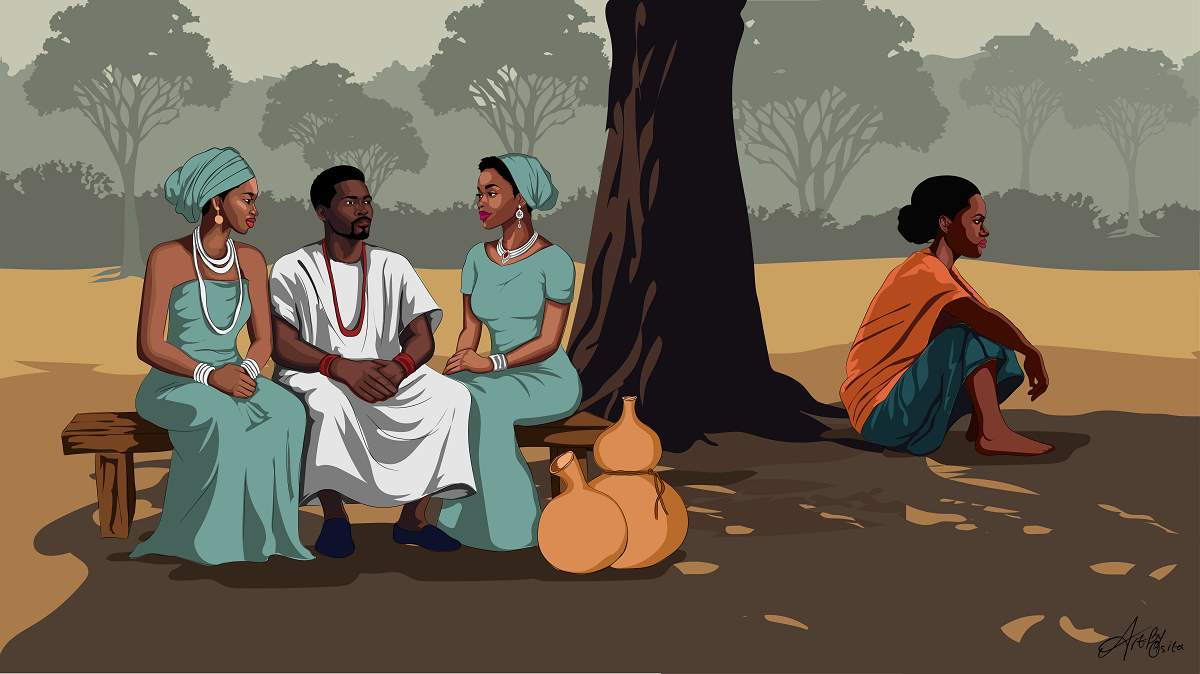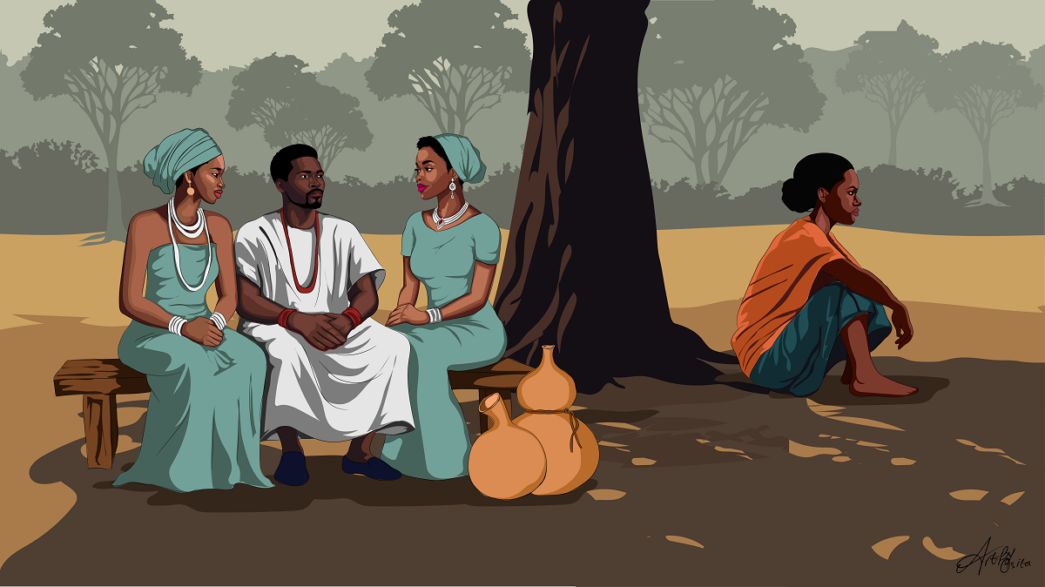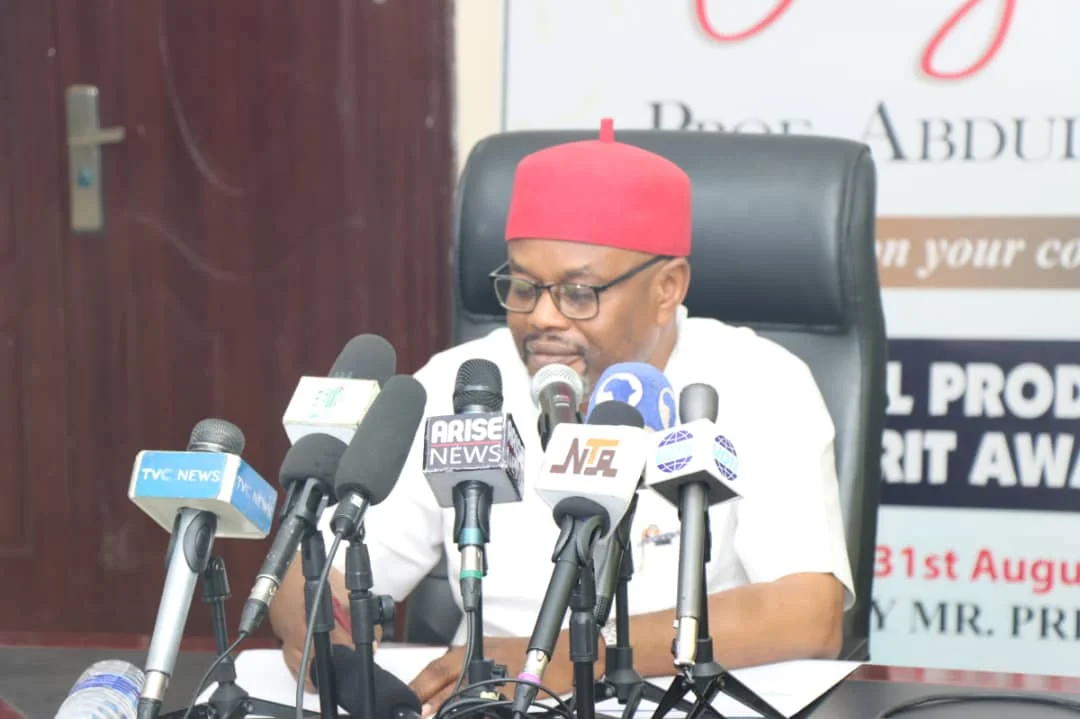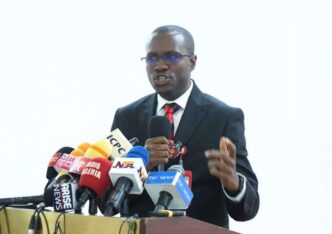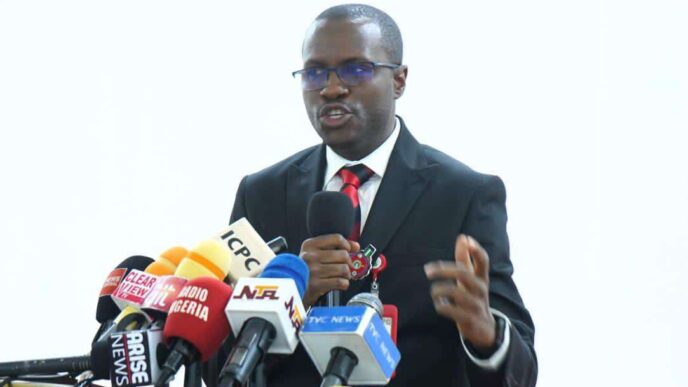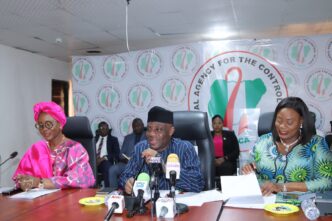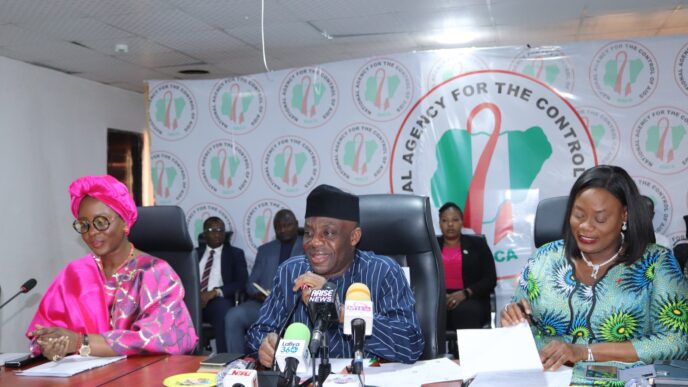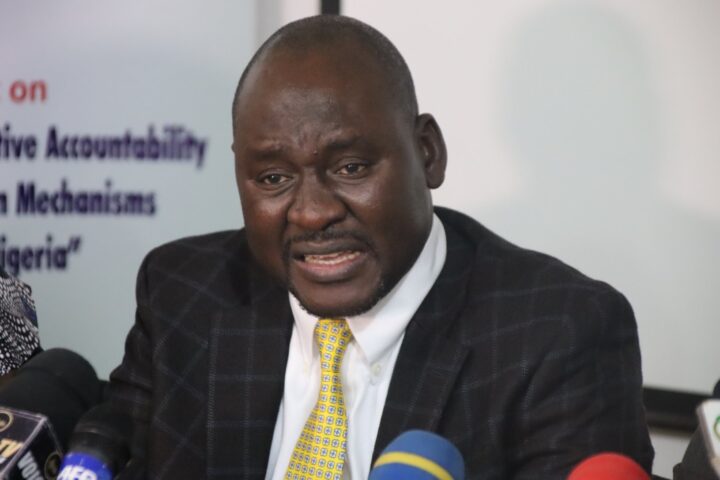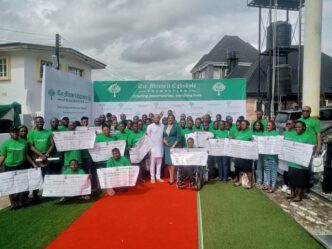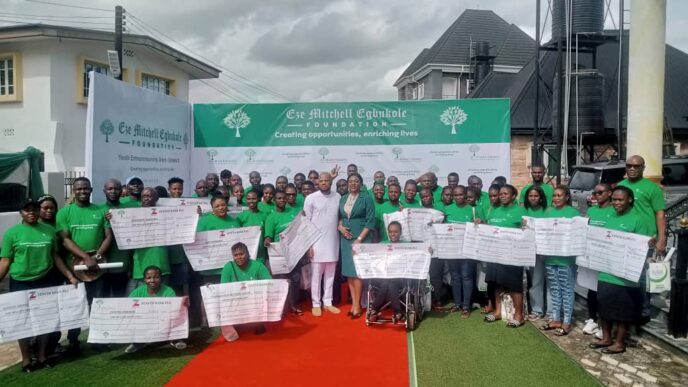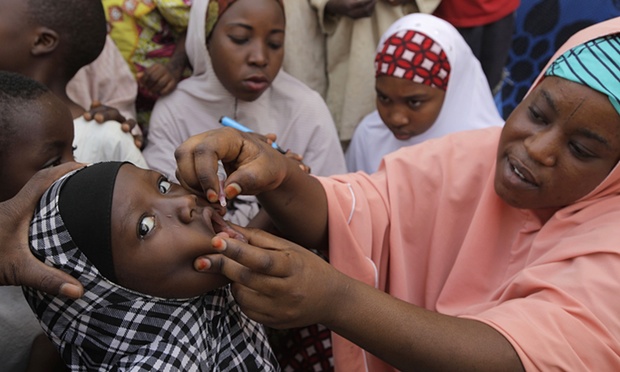BY ANIBE IDAJILI
Maimunat’s beloved husband, whom she had been with for 18 years, recently married a woman nearly half her age. She struggles with the reality of sharing her husband with a total stranger.
“My life has fallen apart,” Maimunat said. “I am forced to share everything: my love, home, life, and savings with a stranger. I have always been a loving and devoted wife. I didn’t exactly have an amazing marriage; we barely survived. I shouldered most of the household expenses, and he only paid the children’s school fees,” she said.
Advertisement
Although Maimunat had known for a long time that her husband was interested in polygamy, she still was not prepared for it. But there it was, hanging on the wall, another woman’s photo. Another child’s name would be next to the list of her husband’s children.
“For months, it felt as though one had sleep paralysis, when one can’t move, and it feels like one’s heart has hit the floor,” Maimunat remembered.
“It felt like a dream, and I wanted it to stop. My already tough life became tougher with my children dropping out of school because their father declared he could not afford to pay their school fees anymore. My children and I are suffering because of that singular decision. My two sons have had to drop out of school to work as farm labourers.”
Advertisement
Confused about how to deal with the situation, Maimunat sought advice from Integrated Orphan and Vulnerable Children Development Extensive (IOVCDE). It’s a community-based organisation, established in 2022 in Minna, Niger state an caters to marginalised women and vulnerable children under one roof.
It was not a different stroke at all for Hadiza, another resident of Minna in Niger state, who shares similar stories with Maimunat.
For the 31 year old whose husband took a third wife, hers came with a low sense of self.
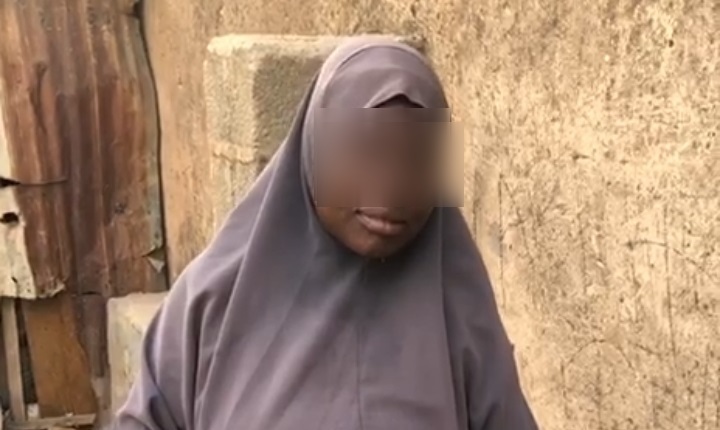
“The sense of rejection brings me to tears. As a woman, you start to doubt yourself—at least, I did. I questioned myself. What’s wrong with me? What’s so wrong with me that he needs to be with another woman?” Hadiza Maina lamented.
Advertisement
An academic paper on polygamy affirms that the practice can negatively impact women’s mental state.
“Women who are in polygamous relationships are more likely to experience psychological problems such as low self-esteem, emotional distress, fear, and anxiety. Some feel lonely since the younger wife sometimes assumes control of the home. The affection of the husband shifts to the younger wife, and the existing wife starts feeling old,” the study reports.
Just like Maimunat, Hadiza also visited IOVCDE to seek mental redress so that they can cope with their polygamous situation.
Hadiza fears that she will be branded a rebellious first wife due to the stigma society attaches to those who experience marital issues and divorce.
Advertisement
Although she believes that IOVCDE’s interventions are ultimately worthwhile.
“It’s a small community, and I know I’m in good hands. But it still bothers me that people see me come here,” Hadiza said.
Advertisement
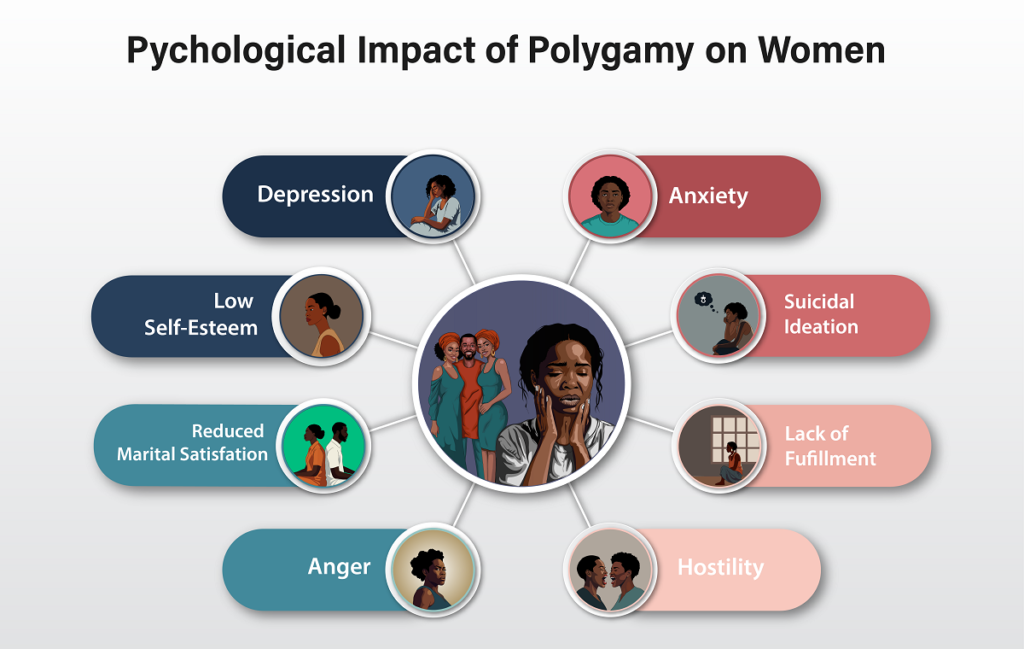
Another recent study explains that the consequence of polygamy on women’s mental health is a form of violence against women and girls, which includes psychological violence, where the first wife, second wife, and third wife feel pressured, embarrassed, and suffer mentally.
Advertisement
Oluwakemi Akintoyese, a principal clinical psychologist at the Federal Neuropsychiatric Hospital in Yaba, Nigeria, explained to AWiM News why women in polygamous marriages often suffer mental distress.
“Polygamous marriages have distinct household problems usually stemming from jealousy between co-wives over husbands’ affections and resources. Also, in most cases, not much attention is paid to the social and emotional needs of children from polygamous homes,” she said.
Advertisement
‘WEST AND CENTRAL AFRICA — THE POLYGAMY BELT’
Studies by the African Development Bank in 2013 on household size and poverty in Nigeria, have shown that beyond the psychological trauma, polygamous households like Maimunat’s have the highest rates of poverty (77.36%) and unequal power distribution, with one parent controlling the majority of the authority. Consequently, the United Nations Human Rights Committee in the year 2000, submitted that the practice of polygamy “violates the dignity of women” and ought to be outlawed.
Still, West and Central Africa are notoriously referred to as the “polygamy belt.” Although civil law prohibits polygamy in Nigeria, and under statutory marriage, a man can only marry one wife, the country has the fifth-highest polygamy prevalence in the world, with 28% of the people believed to be in polygamous marriages.
In Northern Nigeria, which is predominantly Muslim, polygamy is increasingly common. Under Islamic law, a man is permitted to marry up to four wives.
Essentially, the Quran requires that only men who can manage it and treat their wives fairly should practice polygamy (see Surah 4:129).
Following the Islamic law, governments and politicians of mostly Muslim states such as Yobe, Borno, Jigawa, and Sokoto, have sponsored fully funded nuptials. In Jigawa state, for instance, the state government spent over N93 million in 2018 to sponsor an undisclosed number of men to marry 270 orphaned girls.
Although the girls’ ages were not specified, Mustapha Sale Kwalam, the special adviser on religious affairs to the state governor at the time, claimed that “part of the conditions for selecting a beneficiary are that a girl must have attained the age of marriage…”
It is interesting to note, though, that the orphaned brides are referred to as “girls” rather than “women” in all accounts about the mass wedding. Nearly 15 million girls worldwide are married off at an early age, limiting their access to educational opportunities, and economic empowerment.
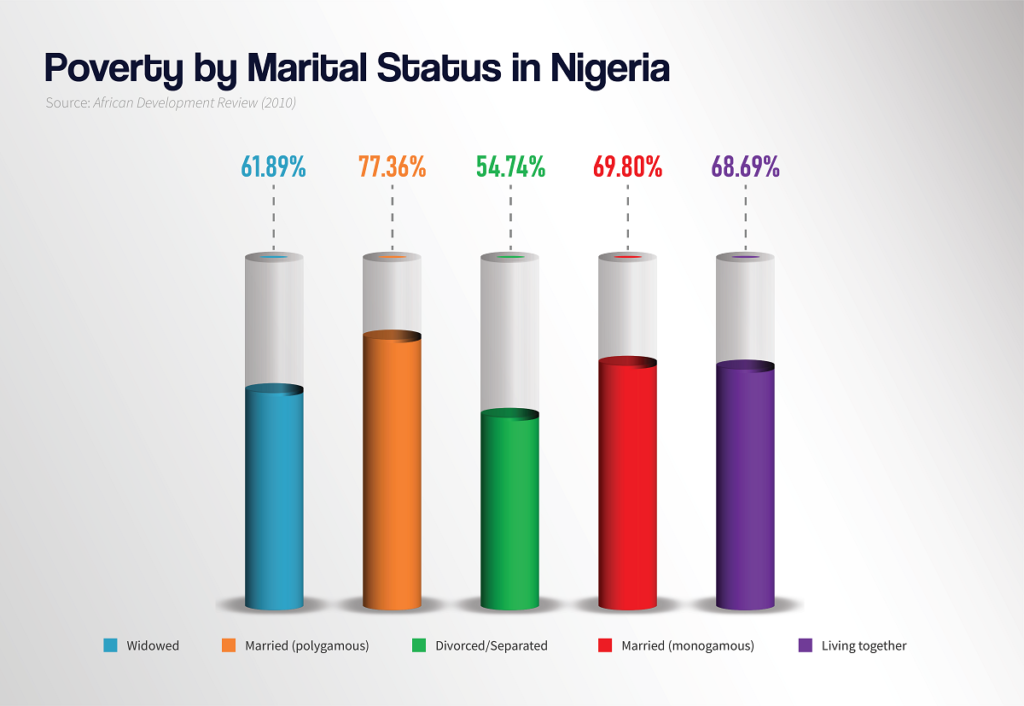
Some of the girls are married off to men who already have several wives. Saleh said that the gesture was part of the government’s efforts to support the state’s poor and vulnerable people.
In an interview with Dauda Danasabe, the Imam of Midwifery Central Mosque in Minna, he explained that funding weddings, in his view, is not the problem.
“The real issue here is that the Quran says if you fear that you will not be just to all your wives, then marry only one. Hence, polygamy itself is not easy—so much so that Allah explicitly warns men that being married to only one increases the likelihood of the man being just to his wife,” Danasabe said.
Imam Danasabe argued that a man must treat each of his wives well. “Otherwise, she may report him to her parents or other respected elders,” he noted.
In his own submission, Kenneth Nnaji, a gender inclusion advocate, said: “We all know how religious and cultural elements have historically been complicit in the opposition to women’s economic empowerment and gender equality.”
Although there is a caveat to the number of wives men can marry under the Islamic law, men can marry as many wives as they please under Nigeria’s customary law. According to a traditional monarch, Alhaji Husseini Shaba Ibrahim, the DharulSalam of Kpakungu in Niger state, polygamy is a matter of opinion and preference.
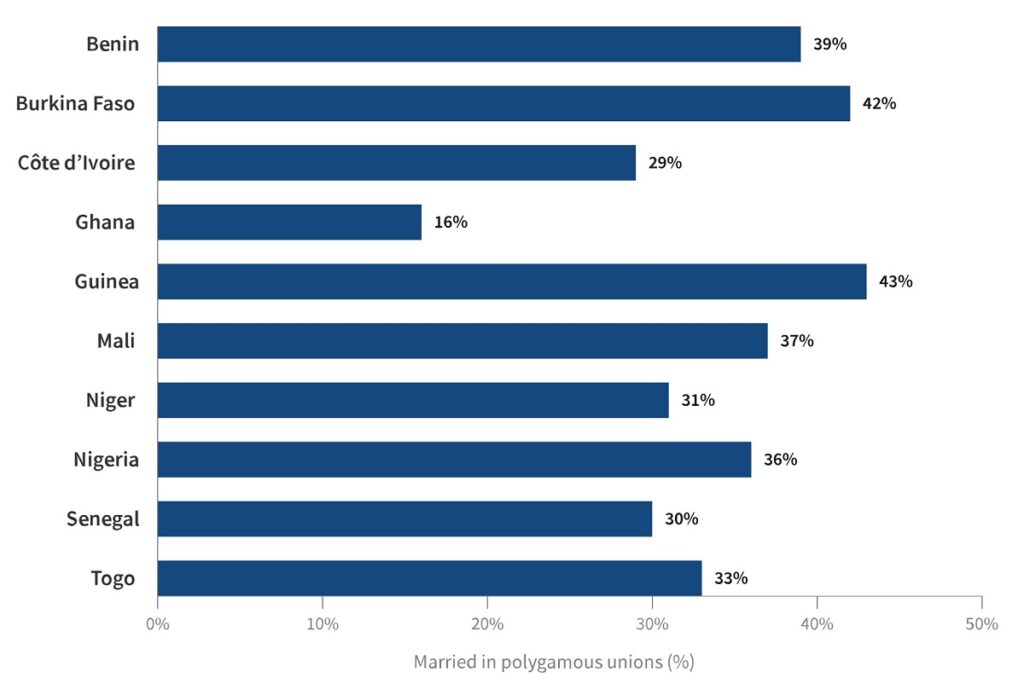
“Nigeria is not an exception to the historical prevalence of polygamy in many African civilisations,” he said. “In terms of resources, many men may truly be capable of bearing the responsibilities. There is no one right way to address matters related to marriage. However, I would concede that there are instances in which a polygamous man may find it impractical to show his love to all his wives in an honest manner.”
Yet, according to Alhaji Shaba, “religious views and beliefs are major players in the way of life of the people in northern Nigeria. A man is permitted to wed up to four wives in Islamic law. Nowhere in the Quran does it state that a woman can protest her husband’s choice to take another wife, even if she feels like she is being forced into polygamy.”
“Keep in mind that a woman cannot file for divorce. However, to maintain harmony, the husband should be gracious enough to give each wife a separate place to live.”
Legal practitioner Mercy Joshua also affirmed that customary laws are recognised in Nigeria which is why some cultures that engage in it can’t protest the forceful marriage of women into polygamy.
NIGERIAN LAW AND ITS PROVISION AGAINST FORCED POLYGAMY
Joshua revealed that the Marriage Act of 1914 protects women from being forced into polygamy.
Section 35 of the Marriage Act provides that: “Any person who is married under this Act, or whose marriage is declared by this Act to be valid, shall be incapable, during the continuance of such marriage, of contracting a valid marriage under customary law….”
“The Marriage Act of 1914 seems to have salvaged this situation to an extent. This law stipulates that a valid marriage can only be between a man and a wife, to the exclusion of any other,” Esq Joshua said. “The Marriage Act did this magic when it restricted marriage under the Act to one man and one woman. So, if a woman desires to have a monogamous marriage, she must opt for marriage under the Act,” Joshua said.
She, however, emphasised that the law does not have application in some cultures except if parties in the marriage decide to be bound by Islamic laws. But if the women in the marriage do not wish to be a party to polygamy, the legal practitioner said they can protest being forced to accept another woman as a wife but only under the Marriage Act.
For Muslim women being forced to accept polygamy in marriages, she said: “The women willingly subject themselves to (Islamic) law and same regulates their marriages. So, we can’t say they are being forced into polygamy.”
“Every woman’s situation is unique, but non-Muslim women who are married under the Marriage Act can seek possible recourse against forced polygamy by reaching out to a lawyer who specializes in family law and women’s rights. And if they are experiencing mental or physical abuse, I suggest that they put their safety first and contact law enforcement agencies for help.”
In 2015, Nigeria introduced the Violence Against Persons Prohibition (VAAP) Act. The VAPP Act’s primary goal is to prohibit all forms of violence against persons to give victims the maximum protection and effective remedies and hold offenders accountable, among other related matters.
Joshua admitted that while polygamy does not violate the VAPP Act, any associated activity that involves violence, abuse, or coercion may fall under the purview of the Act. She maintained that in keeping with the goal of the ‘protection of persons’ law, protection is available to everyone. She also explained that forced polygamy may be tamed to an extent but not completely eradicated under the strict application of the VAAP Act.
“The only law that disallows polygamy, as long as the marriage subsists, is the Marriage Act,” Joshua stated.
A man who marries a second wife during his first marriage can face five years in prison under Section 46 of the Marriage Act and seven years under Section 370 of the Criminal Code Act for the same offense.
FINDING HELP AMIDST A STIGMATISING CULTURE
Although Nigerian laws do not necessarily protect women from forced polygamy in some cultures, Aliyu believes that women should not have to endure hardships because their husbands choose to take on new spouses. Aliyu finds it unfair that women in the situation have to endure psychological anguish, financial difficulties and stigmatisation that comes with living in forced polygamy.
“Working in rural communities, I see firsthand how difficult it is for most children from polygamous homes to finance their education. See, the strain of living in a polygamous household predisposes mothers and children to many issues. In our patriarchal society, people are always stigmatising and discrediting women for seeking outside assistance and trivialising their experiences,” she said.
“Take Maimunat for example; it’s been two years since her husband broke the news to her, and it’s taken her that long to finally talk to us about the economic and mental trauma she faces.”
May Yul-Edochie, an estranged wife to the embattled Nigerian actor, Yul Edochie, is one woman who refused to be cajoled into polygamy. The mother of four, who was married under the Marriage Act, informed Yul—who had fathered a child with his second wife—that she would not consent to a polygamous marriage, as she subsequently filed for divorce.
“…The fact remains that anyone can choose to practice polygamy but can’t be impelled to accept what was never bargained for,” May had stated in response to her ex-husband’s open apology on Instagram.
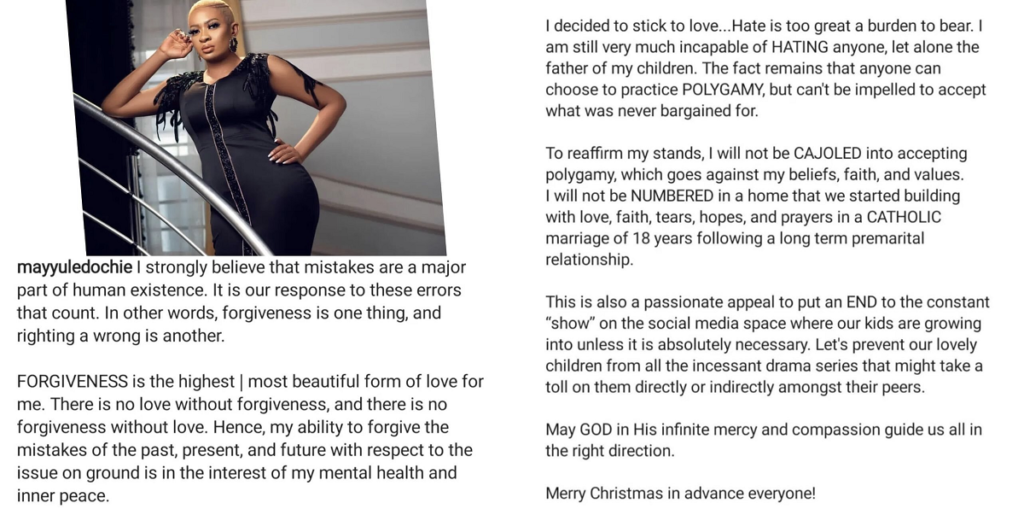
‘WE CAN CHOOSE TO TAKE A RELIGIOUS STANCE OR TO LEAN TOWARDS A RIGHTS-ORIENTED APPROACH’
For women like Hadiza, who are in forced polygamous situations, Fatima Aliyu, the founder of IOVCDE, believes that the media must continue to spotlight their issues. Her organisation helps vulnerable women, including those with unintended pregnancy to survivors of intimate partner violence, and sexual assault; they seek provisional support and counselling. Mostly financing the organisation with her fund, she has helped thirty-two women, including seventeen from polygamous marriages with financial and psychological support.
“I think it is imperative that journalists bring the attention of people to the mental health problems and the long-term repercussions that women in forced polygamous marriages face,” she said. “They should look into how and why polygamy may become a tool of repression for women, leading them to turn to drugs and alcohol as a way out of psychological and emotional torture.”
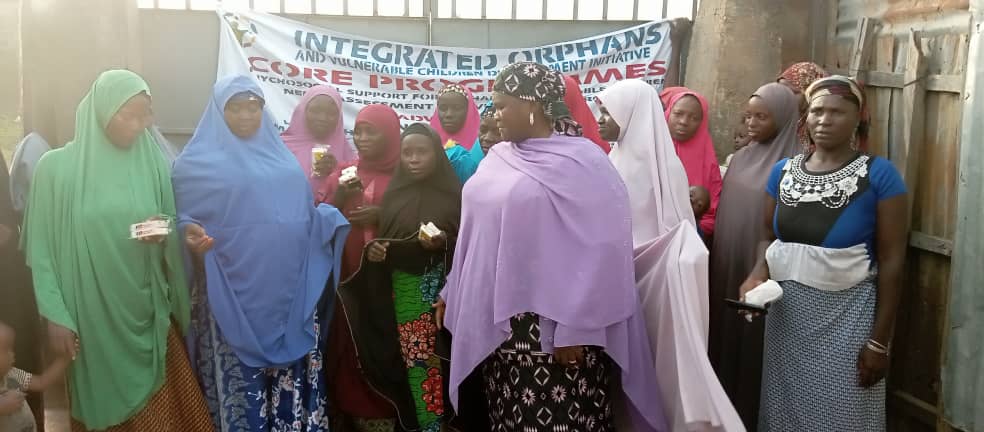
Aliyu also advised that forced polygamy should be viewed from a human-rights perspective and the government should establish more organisations where we can seek redress from stressful marital and economic situations.
“We can choose to take a religious stance or lean toward this debate in a human rights-oriented approach. When we lean towards human rights, it could prompt us to rethink how we support vulnerable women, particularly those in polygamy, and serve as a reminder of the need to support laws and programmes that work to improve these women’s financial status and safeguard their mental health,” Aliyu said.
TIPS FOR SURVIVING MENTAL STRESS IN POLYGAMY
Ola Ibigbami, public mental health professional, also advised that women in forced polygamous marriages who develop mental health distress due to the situation should engage in prompt interventions.
“We must first understand that we are humans with emotions. So, one of the first things to do is to go for counseling. Going for counseling helps you unburden your mind in an atmosphere free from rancor,” Ibigbami said.
“You must also focus on yourself and think of how you can strengthen yourself so that you can live a productive life.
“If you think you cannot live with that option, you should separate yourself from that person rather than putting yourself through the emotional tension of living in that environment.”
This story is part of the African Women in Media (AWiM) ‘Reporting Violence Against Women and Girls’ project,’ supported by the Wole Soyinka Centre for Investigative Journalism.
